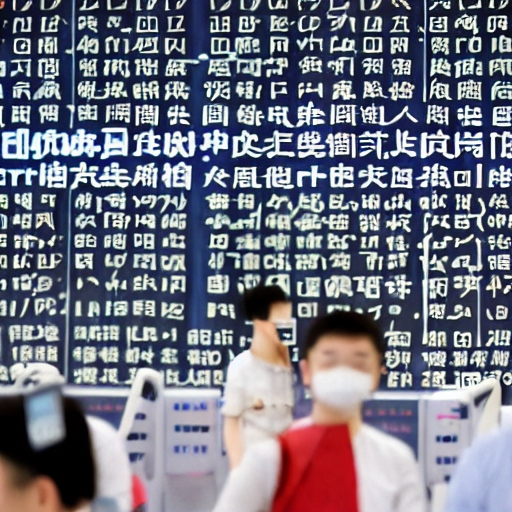China published management guidelines for its burgeoning generative artificial intelligence (AI) business on Thursday, relaxing the language from a previous draught, and announcing that regulators will work to foster the advancement of the technology.
The measures, which are slated to go into effect on August 15 and were labelled as “interim” by Beijing, come after officials marked the end of their years-long assault on the tech sector. They hope to use the industry’s support to jumpstart an economy that has been recovering more slowly than anticipated after the repeal of COVID-19 curbs.
Analysts noted that they were significantly less onerous than restrictions proposed in an April draught, and that the final regulations made sure to emphasize that China wished to support the technology while still ensuring security.
According to the Cyberspace Administration of China (CAC) statement released on Thursday, security assessments would only be required for service providers who wished to offer services to the general public, indicating that companies developing enterprise-facing goods would not be required to submit them.
The proposed regulations demanded perfection in terms of output accuracy and training data quality, which were unattainable targets. According to Tom Nunlist, a technology analyst at the research firm Trivium China, the final version follows this path back and forces businesses to adopt “effective measures” in order to achieve these objectives.
A lot of money has been invested in China’s generative AI scene, and companies like Baidu (9988.HK) and Alibaba Group (9988.HK) have introduced numerous AI models. However, businesses waited to introduce chatbots to the general public until Beijing finished regulations for the technology and certified their products.
Instead, for the time being, the majority of Chinese technology companies were concentrating on developing applications for industrial usage. With the release of ChatRhino, an enterprise-focused large language model, JD.com on Thursday joined the fray.
According to Morningstar analyst Kai Wang, the present version is very much in line with market expectations.
It gives the impression that Chinese officials are making it easier for businesses to launch their products on a wide scale.
“SOCIALIST VALUES”
China has set its eyes on dominating AI by 2030 and sees it as a field in which it can compete with the United States.
As nations around the world struggle to establish regulations for the technology made popular by the success of OpenAI’s ChatGPT chatbot, it is seen to be ahead of the regulatory curve.
These initiatives must balance providing an atmosphere that is conducive to innovation against copyright protections and safety considerations.
In a statement released on Thursday, the CAC emphasized the requirement that content created by generative AI for the general public adhere to China’s fundamental socialist ideals.
It further stated that service providers must ensure that intellectual property rights are not violated and recommended the use of reliable data sources.
China stated that it wanted to participate in developing international regulations as well as promote the advancement of the technology, mentioning sectors like semiconductors and generative AI algorithms.
The regulator stated that the pertinent national agencies must “improve their supervisory methods so that they are scientific and compatible with innovation and development.”








